HOW TO MAKE IT THROUGH SPECIAL FORCES SELECTION
- By George Hand
Share This Article
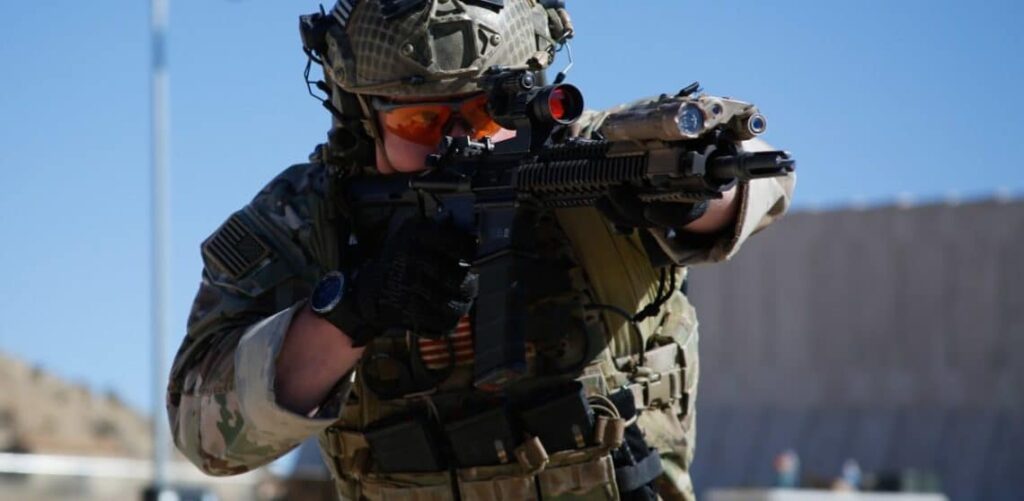
Wondering what it takes to cut the mustard in Special Forces selection?
The time of my first (just) two-year enlistment in the Army was coming to an end. I originally enlisted for the shortest amount of time in the Army in the event that if I really hated it too much I only ever had two years to endure. There were two things that I was positively certain of:
- I really DID want to stay in the Army
- I really did NOT want to stay right where I was in the Army
It wasn’t a matter of being so fervent about wanting to excel into the ranks of Special Forces soldiers at that time; rather, it was the matter of getting away — far away — from the attitudes and caliber of persons I was serving with at the time in the peace- time Army as it was. I understood, so I thought, that the way to ensure I could distance myself from the regular army aura was to go into Special Forces, namely the Green Berets.
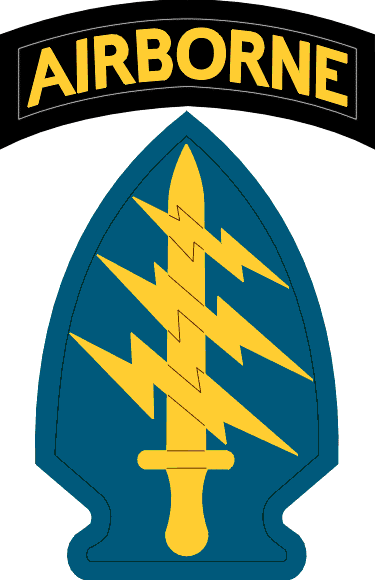
That was a great path forward, but with a near insurmountable obstacle — you had to be a paratrooper! Jumping from an airplane in flight was fine by me, the problem associated with that was that most airplanes had to be really high up before you jumped out of them. I was then as I am still horrendously terrified of heights — woe is me! My fear of altitudes was keeping me from going to Airborne Jump School and stuck in my current morass of resolve.
Well, just two short years in the regular “go nowhere, do nothing†Army and I was ready to jump out of high-in-the-sky airplanes parachute or no parachute. I was ready to jump ship!
Jump School was indeed terrifying despite the small number of jumps, just five, that we were required to make. All of the jumps were in the daytime though mine were all night jumps. All that is required to qualify as a night jump is to simply close one’s eyes. I did. I figured there was nothing so pressing to see while falling and waiting for the intense tug of the opening of the parachute, so I just closed my eyes.
There were 25 of us paratroops headed to the Special Forces Qualification Course (SFQC) upon graduation from Jump School. I was the highest ranking man even as an E-4 in the group, so I was designated the person in charge of the charter bus ride from Jump School to Ft. Bragg, NC for the course — of course! I imagined that duty would not entail much on a bus ride of just a few hours. I was shocked when approached by two men from my group who wished to terminate their status as Green Beret candidates.
Well, the course certainly MUST be hard if men are quitting already on the bus ride to the course.
“Sure fellows, but can you at least wait until we get to Bragg to quit?†I pleaded.
Once at Ft. Bragg, it was our understanding that we were on a two-week wait for our SFQC class to begin. Our first week we tooled about doing essentially nothing but dodging work details like cutting grass and picking up pine cones. The second week was an event that the instructors called “Pre-Phase,†a term that I didn’t like the sound of and braced for impact.
“Pre-Phase,†in my (humble) opinion, was a pointless and disorganized suck-athon. It was a non-stop hazing with back-breaking, butt-kicking, physical events determined to crush the weak and eliminate the faint of heart. In the end we had a fraction of the number of candidates that we started with. I noted that of the 25 men I brought over from Jump School, only me and one other very reserved soldier survived. We nodded at each other and shook hands at the culmination of the mysterious Pre-Phase.
“Good job, brother-man!†I praised him.
“Thank you; my name is Gabrial, you can call me Gabe,†he introduced.
“Great job, Gabe — George is my name — please, call me Geo!†I invited.
The documented entry-level criteria included the ability to pass the standard Army Physical Readiness Fitness Test (APRFT) in a lofty percentile, though one I am loath to admit I do not remember. There was also a swim test that was required of us to perform wearing combat fatigues, combat boots, and carrying an M-16 assault rifle.
We did it in the post swimming pool. It was a bit of a challenge but by no means a threat to my status as a candidate. I was nonetheless dismayed at several men who were not able to pass it after having gone through all they had. It was sad.
The first month of the SFQC was very impressive to me as a young man barely 20 years old. It was all conducted at a remote camp in the woods where we lived in structures made of wood frames and tar paper — barely a departure at all from the outdoor environment. We endured many (MANY) surprise forced marches of unknown distance, very heavy loads, and extreme speed that were hardly distinguishable from a full run.
Aside from the more didactic classroom environment learning skills of every sort, there were the constant largely physical strength and endurance events like hand-to-hand combat training, combat patrolling, rope bridge construction with river crossings, obstacle course negotiating, living and operating in heavily wooded environments. We learned to kill and prepare wild game for meals: rabbits, squirrels, goats, and snakes. Hence the age-old term for Special Forces soldiers — “Snake Eaters,†a moniker I bore with proud distinction.
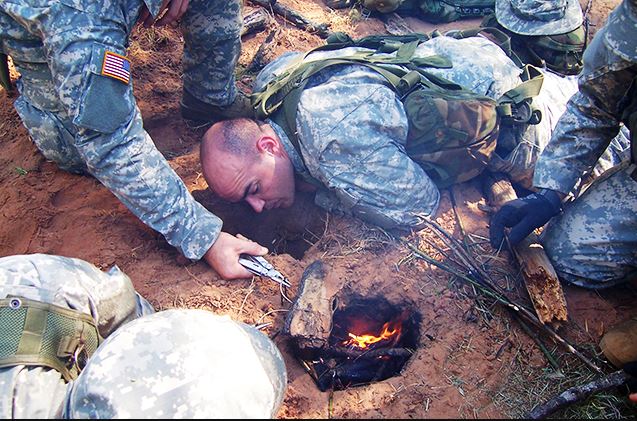
We all had to endure a survival exercise of several days alone. There were dozens of tasks associated with that exercise that we had to accomplish in those days: building shelter, starting and maintaining a fire for heat and cooking, building snares and traps to catch animals for food, and building an apparatus to determine time of day and cardinal directions.
Since the same land was used time after time by the survival training, it was understood by the cadre that the land was pretty much hunted out, leaving no animals to speak of for food. Therefore there was a set day and time that a truck was scheduled to drive by each candidate’s camp to throw an animal off of the back. When the animal hit the ground it became stunned and disoriented. We had just seconds to profit from the animal’s stupor to spring in and catch it before it ran away… or go hungry for the duration.
Hence the sundial I built and my track of the days, to have myself in position to capture my animal when the time came. The time and the truck came. I crouched along the side of the terrain road. The cadre slung a thing that was white from the truck. It hit the ground and was stunned. I pounced on what turned out to be a white bunny rabbit.
“Oh… my God!†I lamented earnestly in my weakened physical and mental capacity, “I’ve stumbled into Alice in Wonderland’s enchanted forest… I can’t eat the White Rabbit!â€
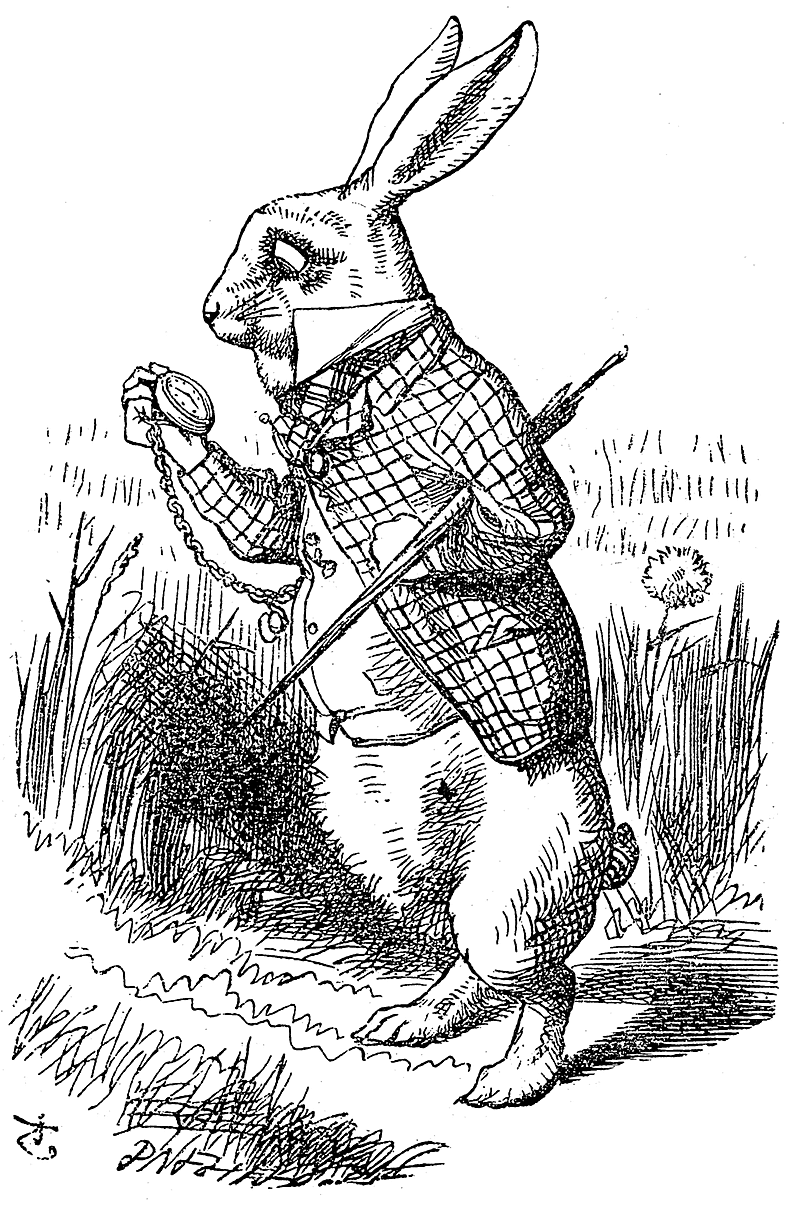
Some men were unfortunately unable to capture their rabbits in time before they ran away. One man was overcome by grief at the prospect of killing his rabbit — his only source of companionship. He rather built a cage for it and graced it with a share of the paltry source of food that he had. Me, I was a loner and swung my Cheshire rabbit by the hind legs head-first into a tree. I ate that night in solace and in the company of just myself.
Men who could no longer continue sat on the roadside each morning and waited for a truck, one that I referred to in disdain as the hearse, to be picked up and removed from the course. One of them was carrying a cage lovingly constructed from sticks and vines in which sat therein a nibbling white rabbit. The man was washed out of the course for failing tasks, backed up by quitting. There was no potential for a man to return for a second time if he had quit on his first try — quitting was not an option.
The event that cut the greatest swath through the candidate numbers was the individual land navigation event. It lasted a week or so with some hands-on cadre-lead instruction, some time for individual practice, culminating in a period of several days and nights of individual tests. The movements were long, the terrain difficult, the stress level very high. Every leg of the navigation course was measured on time and accuracy — we had to be totally accurate on every move, and within the speed standard.
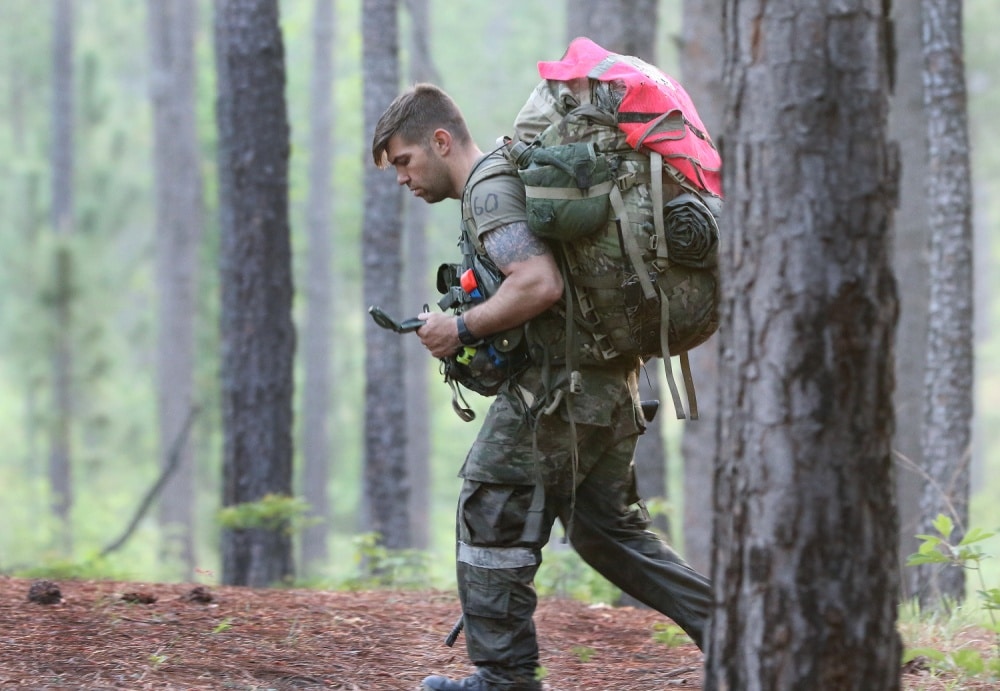
I recall a particular night when all of us lay in our pup tents waiting for our release time to begin our night movements. Just as the hour was on us a monumental torrent of rain began to gush down. The men scrambled and clambered back to their tents like wet alley cats. I performed a simple mathematical equation in my head:
- time equals distance
- hiding in a tent for an undetermined period equals zero time
- zero time equals zero distance
- choosing one’s personal comfort over time equals failure
I had a Grandma Whipple’s rum-soaked cigar clenched tightly in my teeth; it was lit before the rain but no more, and I assure you most fervently that it was never in any way Cuban! Plowing through the vegetation for many minutes I came to a modest clearing that I came to be very familiar with over the days. It told me that I was thankfully on course for the moment. The rain was tapering off generously and I felt a leg up on the navigation for the night.
I reached for my cigar but there was none there save the mere butt that remained clenched in my teach. To my disgust the waterlogged cigar had collapsed under its weight and lay in a mushy black track down my chin and neck edging glacially toward my chest. There would be no comfort of the smoke, nor deterrence of mosquitoes by the smoke of the Grandma Whipple’s rum-soaked positively non-cuban cigar that night.
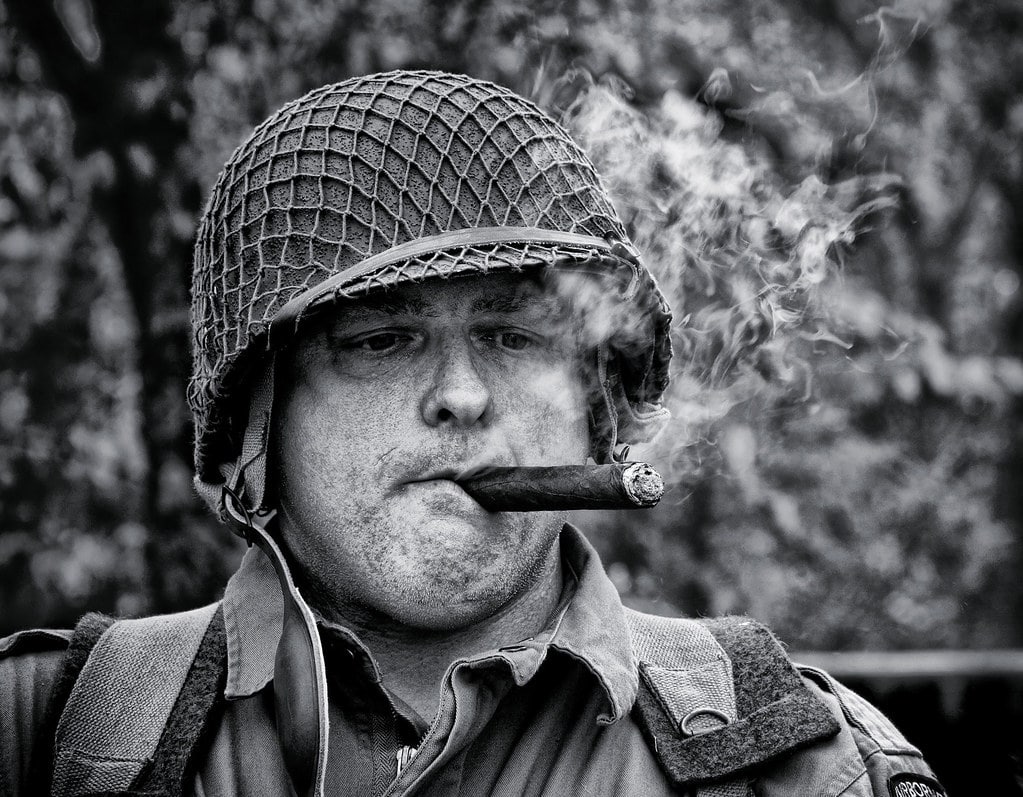
More than five months later I sat on my rucksack (backpack) of some 50 lbs just having completed a timed 12-mile forced ruck march, nothing any longer between me and graduation from the SFQC course. There were plenty of things to think of that had happened or did not happen to me over the nearly half-year, though I somehow chose the bus ride from Jump School to Ft. Bragg to ponder. How rowdy and arrogant the crowd had been, all pompously sporting green berets that they hadn’t even earned yet. Me, I had chosen to wear my Army garrison cap — nothing fancy.
I filtered through the events that had taken each man who had not already quit from that arduous bus ride from Jump School. I remember how they had all failed or quit one by one except that one brother whose hand I shook at the end of pre-phase.
Buses pulled up to move us back to some nice barracks for the night, some barrack at least 12 miles away by my calculation. Usually everyone snatched up his own rucksack by his damned self, but on this occasion the brother next to me pulled up my rucksack to shoulder height for me in a congratulatory gesture of kindness.
I in turn grabbed his rucksack in the same manner though with a deep admiration and respect for the man who had come all the way with me from Jump School through the SFQC fueled by reserved professionalism. His name was Gabriel, but I just called him Gabe.
By Almighty God and with honor, geo sends
Related Posts
Sandboxx News Merch
-

‘Sandboxx News’ Dad Hat
$27.00 Select options This product has multiple variants. The options may be chosen on the product page -

‘AirPower’ Golf Rope Hat
$31.00 Select options This product has multiple variants. The options may be chosen on the product page -
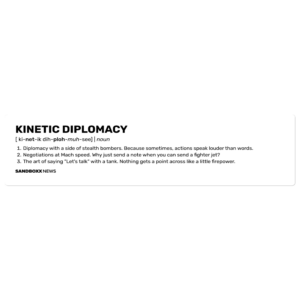
‘Kinetic Diplomacy’ Bumper Sticker (White)
$8.00 Add to cart
George Hand
Master Sergeant US Army (ret) from the 1st Special Forces Operational Detachment-Delta, The Delta Force. In service, he maintained a high level of proficiency in 6 foreign languages. Post military, George worked as a subcontracter for the U.S. Department of Energy (DOE) on the nuclear test site north of Las Vegas Nevada for 16 years. Currently, George works as an Intelligence Analyst and street operative in the fight against human trafficking. A master cabinet-grade woodworker and master photographer, George is a man of diverse interests and broad talents.
Related to: Special Operations
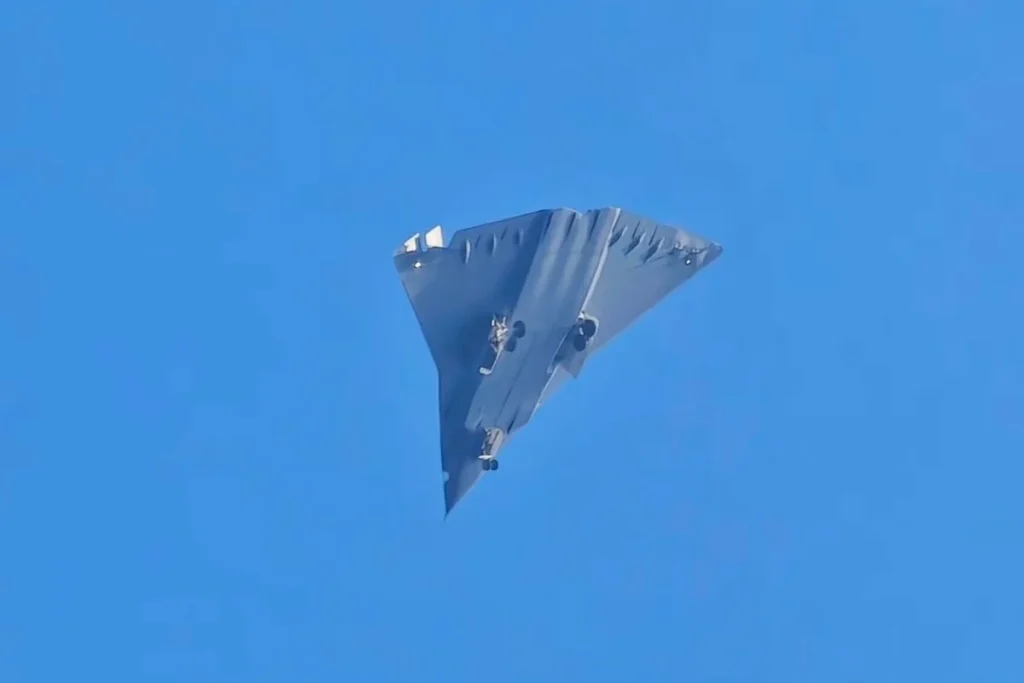
What do we know about China’s new ‘6th gen’ fighters?
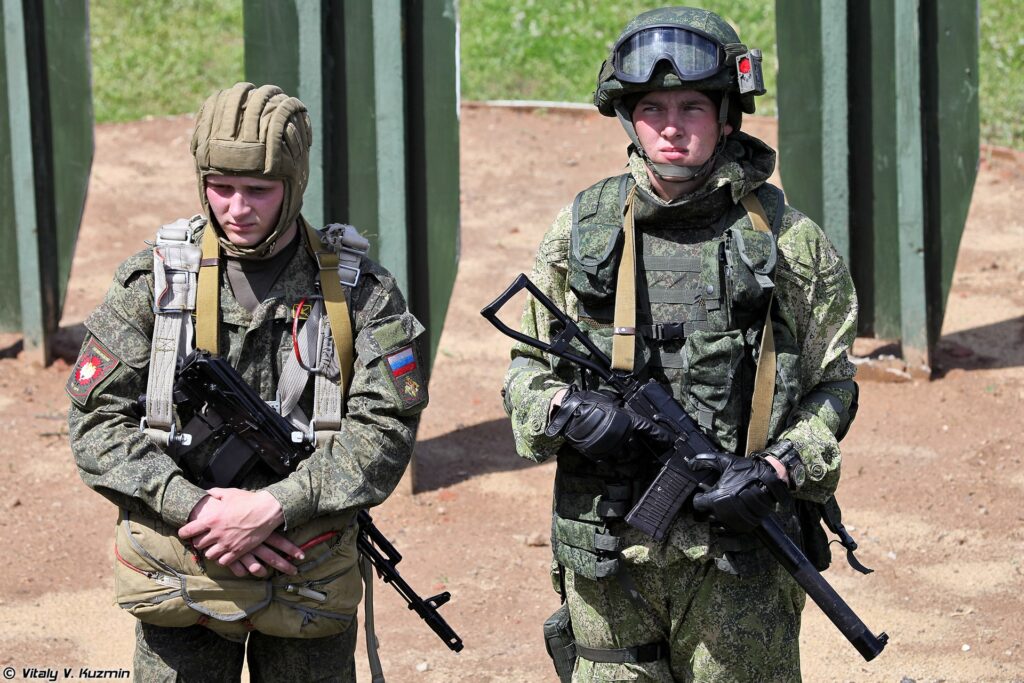
Russia has been suffering huge casualties but this shouldn’t matter
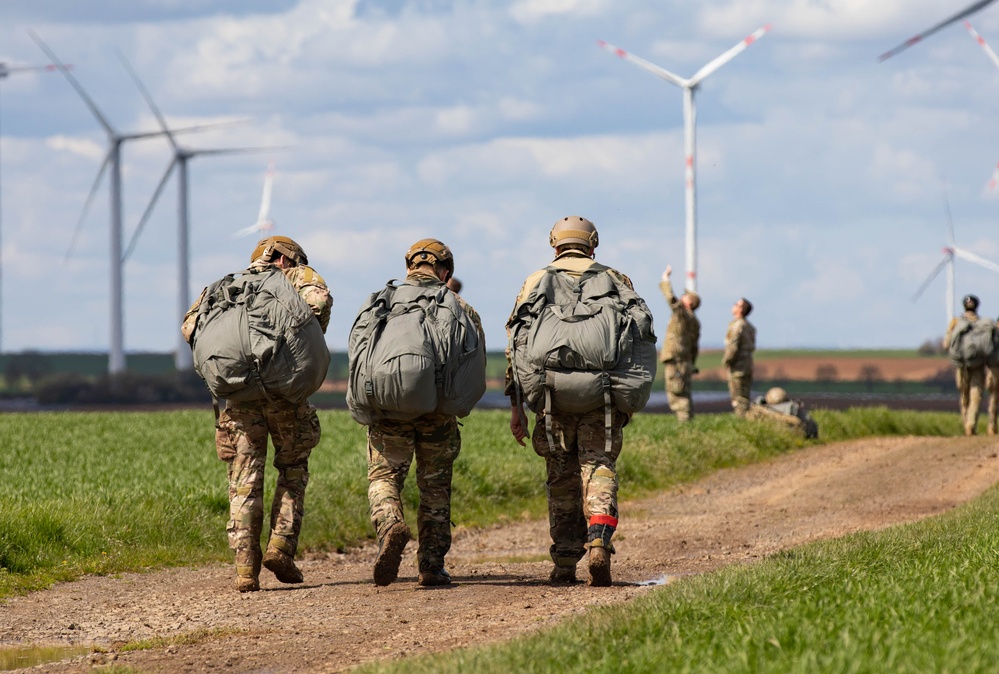
Congress demands answers on low testosterone issues among special operators
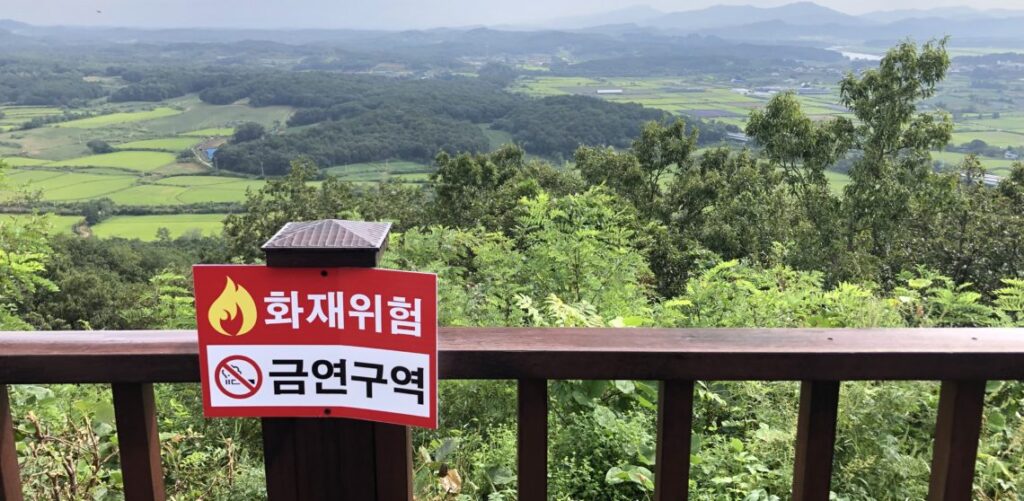
What it’s like to visit Korea’s Demilitarized Zone
Sandboxx News
-

‘Sandboxx News’ Trucker Cap
$27.00 Select options This product has multiple variants. The options may be chosen on the product page -

‘AirPower’ Classic Hoodie
$46.00 – $48.00 Select options This product has multiple variants. The options may be chosen on the product page -

‘AirPower’ Golf Rope Hat
$31.00 Select options This product has multiple variants. The options may be chosen on the product page -

‘Sandboxx News’ Dad Hat
$27.00 Select options This product has multiple variants. The options may be chosen on the product page
